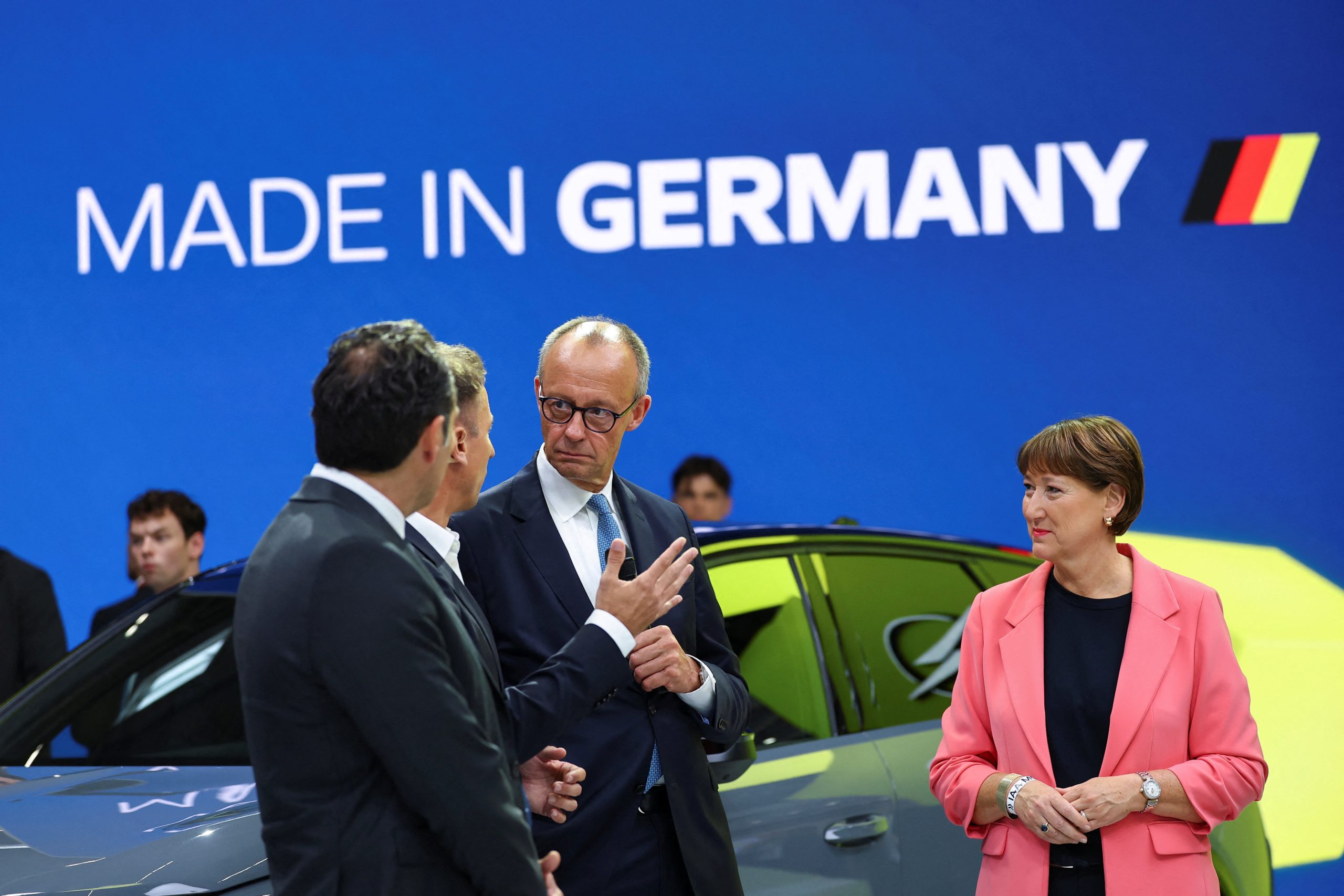Former Chancellor Angela Merkel came to power in 2005 as an outspoken critic of China’s human rights record, only to go soft. While the rest of the European Union called China a “systemic rival,” Merkel refused to utter the term. Instead, she pushed hard for a Beijing-friendly EU-China investment accord. Fortunately, the European Parliament, where I served, blocked the bad deal.
Merkel’s successor, Social Democrat Olaf Scholz, toughened German policy, mostly because of pressure from junior coalition partners, the Greens and Free Democrats. Scholtz’s 2023 China Strategy aligned with Brussels “de-risking.”
The new Christian Democrat Chancellor Friedrich Merz has promised more Scholz and less Merkel, but with one big difference: gone is Scholz’s hope in pursuing “close transatlantic coordination.” As the Trump administration pushes back against Chinese exports to the US, subsidized Chinese products tend to flood into Europe. When Washington increases economic pressure on Europe, the continent struggles to deflect much more dangerous Chinese pressure.
China’s share of global manufacturing stands at about 35% and keeps rising. Many nations have similar concerns over protecting their own industrial and tech futures. It is in Europe’s interest to meet the China challenge as a team sport, partnering with the US, other industrialized nations, and developing nations such as Brazil, India, South Africa, Indonesia, or Vietnam. But since that view finds no echo in Washington, Germany and the EU must look for other partners.
Get the Latest
Sign up to receive regular Bandwidth emails and stay informed about CEPA’s work.
Merz has toughened Germany’s stance on China. While many European leaders have made pilgrimages to Beijing, Merz postponed a visit. His first telephone call with Chinese leader Xi Jinping took place more than two weeks after taking office. During the phone call, the Chancellor pressed for Chinese support for a Ukraine ceasefire and for “fair economic competition and reciprocity.”
Merz also offers clear support to Taiwan, seeing Germany’s China policy in the context of “a new systemic conflict” between “liberal democracies and an axis of autocracies.”
Foreign Minister Johann Wadephul shares this skepticism of China. During his meeting this summer with Chinese counterpart Wang Yi, he raised the issue of Chinese support of Russia’s war in Ukraine, rejecting Wang Yi’s plea for a “comprehensive strategic partnership.” Minister Wadephul criticized China’s activities in the South China Sea. saying they “not only threaten Asian security, but also undermine the rules-based global order” and “directly impact German and European interests.” When Beijing protested against that language, Wadephul doubled down.
Despite these tough political messages, legitimate questions remain unanswered.
The two German political parties toughest on China, the German Greens and the Free Democrats, emerged weakened in the 2025 election. Few public voices demonstrate the political will to reduce Germany’s still growing economic dependency on China.
Many members of Merz’s party prioritize trade ties as if we still lived in the age of German-China “win-win.” Bavarian Christian Social Union leaders look at China through the lens of Siemens and BMW, both headquartered in their region. For these multinationals, derisking holds little currency. VW, for example, is doubling down on investment in China, not just continuing to manufacture there, but also exporting its Chinese-made cars.
Chancellor Merz has warned big German investors that his government will not bail them out if their China gambit fails. But how credible is such a warning, when Germany didn’t dare support EU tariffs on highly subsidized Chinese electric vehicles?
In fact, German business is divided. Multinationals, including the automotive powerhouses BASF, the world’s largest chemical company, and large infrastructure conglomerate Siemens, have put a lot of eggs into the Chinese basket. They are still making good profits in China.
But the vast majority of small and medium-sized enterprises, the country’s famed Mittelstand, are losing market share not only in China, but also elsewhere due to subsidized Chinese competition and unfair trade practices. One telling example: China’s engineering industry, which had a global market share of close to zero in 2004, now controls 12%, while Germany’s share has weakened.
A Mittelstand-oriented German trade and investment policy would take a tough anti-China line. In a striking June 2025 strategy paper, the VDMA trade association, traditionally a free trade promoter, advocated protecting European industry. Its slogan: “China does not play fair – we need a political reaction.” Their recipe is clear. Impose tariffs. Insist on local content rules. Make sure that Chinese imports abide by European standards.
A recent business survey organized by BDI, the German Federation of Industry, questioned German businesses about competition with China. Although the auto lobby insisted on keeping the results secret, a leak revealed that steel, biotech, chemical, medical technology, machinery, textiles, and telecom respondents described a darkening landscape because of the “aggressive pricing policies by state-supported Chinese companies.”
The BDI findings and the VDMA paper should have provoked a nationwide debate over Germany’s industrial future. That has not happened. Not in the media. Not in parliament. No government minister has spoken up. The new German government came into office promising to stand up against China. But the risk remains that it will just talk tough and continue muddling through.
Reinhard Bütikofer is a Senior Fellow with the Tech Policy Program at the Center for European Policy Analysis. Bütikofer previously served as a Member of the European Parliament (2009-2024) and was a prominent leader of the European Green Party.
Bandwidth is CEPA’s online journal dedicated to advancing transatlantic cooperation on tech policy. All opinions expressed on Bandwidth are those of the author alone and may not represent those of the institutions they represent or the Center for European Policy Analysis. CEPA maintains a strict intellectual independence policy across all its projects and publications.
Read More From Bandwidth
CEPA’s online journal dedicated to advancing transatlantic cooperation on tech policy.


